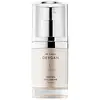What's inside
What's inside
 Key Ingredients
Key Ingredients

 Benefits
Benefits

 Concerns
Concerns

 Ingredients Side-by-side
Ingredients Side-by-side

Water
Skin ConditioningGlycerin
HumectantButylene Glycol
HumectantImperata Cylindrica Root Extract
Skin ConditioningDimethyl Isosorbide
SolventMeadowfoam Delta-Lactone
Skin ConditioningRetinyl Propionate
Skin ConditioningRetinol
Skin ConditioningSwertia Chirata Leaf Extract
AstringentUrea
BufferingYeast Amino Acids
HumectantTrehalose
HumectantInositol
HumectantTaurine
BufferingBetaine
HumectantFucus Vesiculosus Extract
EmollientGlycine Soja Extract
Skin ConditioningMacrocystis Pyrifera Extract
Skin ConditioningIsopropyl Palmitate
EmollientLecithin
EmollientPvp
Emulsion StabilisingHexylene Glycol
EmulsifyingCaprylyl Glycol
EmollientPunica Granatum Seed Oil
EmollientCaprylic/Capric Triglyceride
MaskingPvm/Ma Decadiene Crosspolymer
PEG-8
HumectantCarbomer
Emulsion StabilisingSodium Bisulfite
AntioxidantSilica
AbrasiveSodium Hydroxide
BufferingChlorphenesin
AntimicrobialPhenoxyethanol
PreservativeParfum
MaskingCI 77891
Cosmetic ColorantSynthetic Fluorphlogopite
CI 14700
Cosmetic ColorantCI 19140
Cosmetic ColorantWater, Glycerin, Butylene Glycol, Imperata Cylindrica Root Extract, Dimethyl Isosorbide, Meadowfoam Delta-Lactone, Retinyl Propionate, Retinol, Swertia Chirata Leaf Extract, Urea, Yeast Amino Acids, Trehalose, Inositol, Taurine, Betaine, Fucus Vesiculosus Extract, Glycine Soja Extract, Macrocystis Pyrifera Extract, Isopropyl Palmitate, Lecithin, Pvp, Hexylene Glycol, Caprylyl Glycol, Punica Granatum Seed Oil, Caprylic/Capric Triglyceride, Pvm/Ma Decadiene Crosspolymer, PEG-8, Carbomer, Sodium Bisulfite, Silica, Sodium Hydroxide, Chlorphenesin, Phenoxyethanol, Parfum, CI 77891, Synthetic Fluorphlogopite, CI 14700, CI 19140
Water
Skin ConditioningHelianthus Annuus Seed Oil
EmollientGlycerin
HumectantDimethicone
EmollientIsopropyl Palmitate
EmollientPalmitoyl Tripeptide-1
Skin ConditioningPalmitoyl Tetrapeptide-7
Skin ConditioningSteareth-20
CleansingChrysin
Skin ConditioningN-Hydroxysuccinimide
Skin ConditioningButylene Glycol
HumectantCarbomer
Emulsion StabilisingPolysorbate 20
EmulsifyingGlycol Distearate
EmollientGlyceryl Stearate
EmollientPEG-100 Stearate
Stearic Acid
CleansingStearyl Alcohol
EmollientPhytonadione Epoxide
AstringentVitis Vinifera Seed Oil
EmollientPersea Gratissima Oil
Skin ConditioningTocopheryl Acetate
AntioxidantAllantoin
Skin ConditioningTitanium Dioxide
Cosmetic ColorantTetrasodium EDTA
Triethanolamine
BufferingPhenoxyethanol
PreservativeEthylhexylglycerin
Skin ConditioningWater, Helianthus Annuus Seed Oil, Glycerin, Dimethicone, Isopropyl Palmitate, Palmitoyl Tripeptide-1, Palmitoyl Tetrapeptide-7, Steareth-20, Chrysin, N-Hydroxysuccinimide, Butylene Glycol, Carbomer, Polysorbate 20, Glycol Distearate, Glyceryl Stearate, PEG-100 Stearate, Stearic Acid, Stearyl Alcohol, Phytonadione Epoxide, Vitis Vinifera Seed Oil, Persea Gratissima Oil, Tocopheryl Acetate, Allantoin, Titanium Dioxide, Tetrasodium EDTA, Triethanolamine, Phenoxyethanol, Ethylhexylglycerin
Alternatives
Ingredients Explained
These ingredients are found in both products.
Ingredients higher up in an ingredient list are typically present in a larger amount.
Butylene Glycol (or BG) is used within cosmetic products for a few different reasons:
Overall, Butylene Glycol is a safe and well-rounded ingredient that works well with other ingredients.
Though this ingredient works well with most skin types, some people with sensitive skin may experience a reaction such as allergic rashes, closed comedones, or itchiness.
Learn more about Butylene GlycolCarbomer is a polymer of acrylic acid. Its main role is to create a gel consistency.
A high amount of carbomer can cause pilling or balling up of products. Don't worry, most products contain 1% or less of carbomer.
Glycerin is already naturally found in your skin. It helps moisturize and protect your skin.
A study from 2016 found glycerin to be more effective as a humectant than AHAs and hyaluronic acid.
As a humectant, it helps the skin stay hydrated by pulling moisture to your skin. The low molecular weight of glycerin allows it to pull moisture into the deeper layers of your skin.
Hydrated skin improves your skin barrier; Your skin barrier helps protect against irritants and bacteria.
Glycerin has also been found to have antimicrobial and antiviral properties. Due to these properties, glycerin is often used in wound and burn treatments.
In cosmetics, glycerin is usually derived from plants such as soybean or palm. However, it can also be sourced from animals, such as tallow or animal fat.
This ingredient is organic, colorless, odorless, and non-toxic.
Glycerin is the name for this ingredient in American English. British English uses Glycerol/Glycerine.
Learn more about GlycerinIsopropyl Palmitate is a texture enhancer and emollient. It is an ester of isopropyl alcohol and palmitic acid.
Palmitates are emollients. Emollients help keep your skin soft and smooth by creating a barrier that traps moisture in.
When added to cosmetics, Isopropyl Palmitate creates a silky texture and improves spreadability.
Isopropyl Palmitate may not be fungal acne safe. It can worsen acne prone skin.
Learn more about Isopropyl PalmitatePhenoxyethanol is a preservative that has germicide, antimicrobial, and aromatic properties. Studies show that phenoxyethanol can prevent microbial growth. By itself, it has a scent that is similar to that of a rose.
It's often used in formulations along with Caprylyl Glycol to preserve the shelf life of products.
Water. It's the most common cosmetic ingredient of all. You'll usually see it at the top of ingredient lists, meaning that it makes up the largest part of the product.
So why is it so popular? Water most often acts as a solvent - this means that it helps dissolve other ingredients into the formulation.
You'll also recognize water as that liquid we all need to stay alive. If you see this, drink a glass of water. Stay hydrated!
Learn more about Water